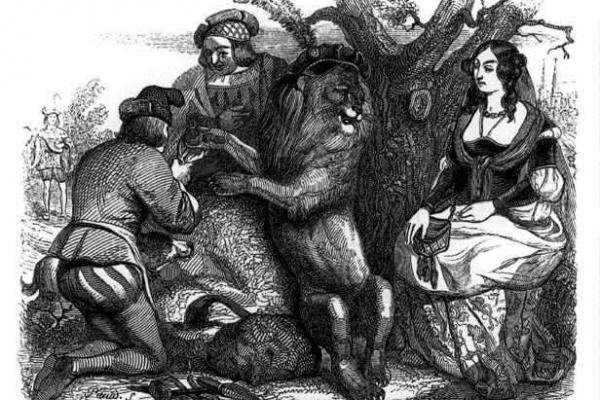Featured Autumn Course: French 1801

French 1801 Masterpieces of French Literature in Translation
Autumn 2016, WF 11:10-12:30, #33511, Baker Systems 144
Prof Heller, heller.64@osu.edu
Office hours: WF 3:45-4:30 & by appointment
Office: 230 Hagerty Hall
Description:
Discover masterpieces of French Literature in translation:
• Explore a little history and geography through classic Asterix comics
• Study a variety of "sound bytes" in the form of classic fables, short stories and poems on major themes such as pleasure and unmasking posers
• Read Molière's scathing comedies mocking hypocrisy and self-righteousness
• …and Flaubert's great novel of shopping gone wrong, Madame Bovary
* Gain techniques for reading plays, poems, and prose faster and better
• Become a better critic and observer of your own culture
GE Literature and diversity global studies course.
GE Literature Goals:
Students evaluate significant texts in order to develop capacities for aesthetic and historical response and judgment; interpretation and evaluation; and critical listening, reading, seeing, thinking, and writing.
Expected Learning Outcomes:
1. Students analyze, interpret, and critique significant literary works.
2. Through reading, discussing, and writing about literature, students appraise and evaluate the personal and social values of their own and other cultures.
GE Global Studies Goals: Students understand the pluralistic nature of institutions, society, and culture in the United States and across the world in order to become educated, productive, and principled citizens.
Expected Learning Outcomes:
1. Students understand some of the political, economic, cultural, physical, social, and philosophical aspects of one or more of the world's nations, peoples and cultures outside the U.S.
2. Students recognize the role of national and international diversity in shaping their own attitudes and values as global citizens.
Course goals. Students will:
1. be introduced to six centuries of works of French literature, gaining a sense of chronology.
2. study the vocabulary of prosody, versification, and narrative to identify the formal structure and literary techniques used in a work, leading to an appreciation of what distinguishes a given work as a "masterpiece."
3. learn techniques for reading on multiple levels (literal, symbolic, allegorical, moral), and express how each of these levels operate together in a particular text.
4. identify themes and tropes used in a work, and distinguish between commonplace and innovative uses.
5. become acquainted with the social, political, economic, and ideological forces that inspired different works or which the texts strive to comment upon, and that made them popular in a certain time in France and French-speaking parts of the world.
6. get to know some French and Francophone geography, historical dress, art, and architecture to better read the texts in context.
7. examine how French texts such as the fables of La Fontaine criticize social institutions through the subtle use of literary form and rhetoric, and consider how the content and techniques might relevantly employed today.
8. consider the role of pleasure in the composition, reception, and canonical status of texts.
Texts:
1. René Goscinny and Albert Uderzo, Asterix and the Banquet, trans. Anthea Bell and Derek Hockridge. ISBN 978-0752866093
2. Introduction to French Poetry, ed. Stanley Applebaum. ISBN 978-0486267111.
3. La Fontaine, Selected Fables. Trans. James Michie. Penguin Classics. ISBN 978-0140455243.
4. Molière, The Misanthrope and Tartuffe, trans. Richard Wilbur. ISBN 978-0156605175.
5. The Oxford Book of French Short Stories, ed. Elizabeth Fallaize. ISBN 978-0199583171.
6. Gustav Flaubert, Madame Bovary, Norton Edition. ISBN 978-0393979176.
![]() Download PDF French 1801
Download PDF French 1801
